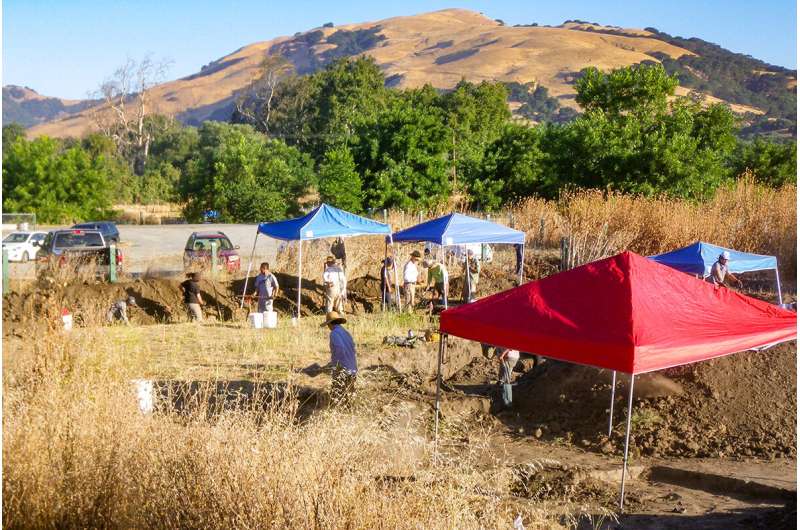
A study of Native peoples in the San Francisco Bay Area found that eight present-day members of the Muwekma Ohlone Tribe share ancestry with 12 people who lived in the region hundreds of years ago.
Ripan Malhi, a professor of anthropology at the University of Illinois, said that the study challenges the idea that the Ohlone migrated to the area between A.D. 500-1,000. The study was overseen by the Muwekma Ohlone Tribal Council.
The Ohlone were thought to be relative newcomers to the region. The team reported that the research found a signal of continuity between the ancient population and the new one.
Malhi said that they analyzed a large number of ancestral remains and focused on those with the best preservation.
Malhi said that the study focused on nuclear DNA and the near complete genomes of several ancestral individuals.
The team compared ancient DNA from people who lived in California and other parts of North America to look for similarities and differences.
One village existed from 490 B.C. to A.D. 1775 and the other from 1345-1839 The Far Western Anthropological Research Group excavated both sites at the request of the Muwekma Ohlone Tribal Council. The primary excavators of all burials were members of the Muwekma tribe.
This was a rare, collaborative, community-engaged research project, with tribal members and archaeologists working side by side for more than a year of fieldwork, resulting in a tremendous repatriation of knowledge to the descendent community.
The Tribal Council approved a study design for the work and members of the study team met with tribal members to review the work.
Malhi said that part of what they wanted to do was to have a moreholistic approach of having community knowledge or traditional knowledge along with all the archaeological documentation to tell the story.
The Muwekma Ohlone Tribe's present-day members are descended from Native Americans who were incorporated into the three Bay Area missions in the late 18th century. After the American conquest of California, the surviving Native American communities found refuge on lands held by people of Spanish, Mexican, and Indigenous origin. They were buried at the Ohlone cemetery through the 1920s.
The researchers wrote thatMuwekma Ohlone comprise all of the lineages who trace their ancestry through the Bay Area Missions of San Francisco, Santa Clara and San Jose, and who were also members of the historic previously recognized Verona Band of Alameda County.
The tribe traced its genealogy using the mission's marriage and death records. The ancient and modern DNA studies were supported by the Muwekma Ohlone tribal leadership.
Prior to European contact, California was home to one of the most diverse Native American communities on the planet.
More than 15,000 Native Americans from five distinct language groups were living within 20 kilometers of the bay. The Bay Area's archaeological record goes back more than 11,000 years, and studies show that sedentary or semi-sedentary habitation extends back more than 5,000 years.
The Native population was diverse and European contact disrupted the existing communities, according to the researchers. Five of the Spanish missions in the Bay Area were established in the late 1700s and early 1800s. California became a U.S. state in 1850 after Mexico claimed the territory in 1822. The governor promised a war of extermination between the races until the Indian race becomes extinct.
The Muwekma Ohlone and other Native tribes lost population due to these upheavals. The researchers found that a signature of the tribe's ancient history still exists in the modern Ohlone community members.
We were able to find one ancestral component from their analysis that was shared with ancient people from the Bay Area.
More information: Ancient and modern genomics of the Ohlone Indigenous population of California, Proceedings of the National Academy of Sciences (2022). DOI: 10.1073/pnas.2111533119. Journal information: Proceedings of the National Academy of Sciences Citation: Study ties present-day Native American tribe to ancestors in San Francisco Bay Area (2022, March 21) retrieved 21 March 2022 from https://phys.org/news/2022-03-ties-present-day-native-american-tribe.html This document is subject to copyright. Apart from any fair dealing for the purpose of private study or research, no part may be reproduced without the written permission. The content is provided for information purposes only.